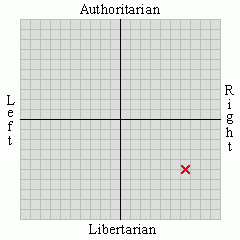Elections have always been seen as a means of deciding who should make up the government. But, in recent years, there has been a growing view that it doesn’t really make all that much difference. “Whoever you vote for, the government always gets in,” people say. It looks more and more like something that is done to you rather than something in which ordinary people have a say. Another saying is “it’s like choosing which colour of stick you want to be beaten with.”
We seem to be ruled by a political class that, whichever party is in power, adopts a very similar internationalist, politically correct, metropolitan, liberal, pro-global-warming standpoint that seems increasingly detached from the grass roots. So it’s not surprising that voters have been deserting the two main parties and, over the past four years, the split-the-difference LibDems too. South of the Border the main beneficiary of this trend has been UKIP.
However, there’s a tendency to regard a vote for UKIP as a howl of rage rather than an expression of any coherent sentiment, as in this generally quite perspicacious Guardian article by Matthew Goodwin, which suggests it has a “nihilistic” quality.
What Conservatives (and Labour) fail to understand is that Ukip’s appeal is as much about a diffuse but intense feeling of unease over the direction and pace of social change in modern Britain as it is about a specific and yearning desire to end immigration, leave the EU or reform Westminster. These voters do not like how Britain is changing, and they loathe politicians even more. This explains their nihilistic quality. In their hearts most Ukippers probably know that they might not get what they want. But some people just want to watch the world burn.Surely, though, if you believe that the major parties have forfeited the right to your support through ignoring you, you are quite entitled to vote for someone else to show your disgust or teach them a lesson. And the same applies just as much to anyone voting for the Greens or the SNP. You know that, in the short term at least, your chosen party is unlikely to be able to implement much of its programme. But you will be choosing a Westminster MP who will represent your views, and who may, depending on Parliamentary arithmetic, be able to bring some influence to bear on government policy.
As US President John Quincy Adams once said. “Always vote for principle, though you may vote alone, and you may cherish the sweetest reflection that your vote is never lost.” So, today, if you live in Clacton or Heywood & Middleton, go out to the polling station and do just that. No vote is a wasted vote if it reflects your own beliefs.








No comments:
Post a Comment